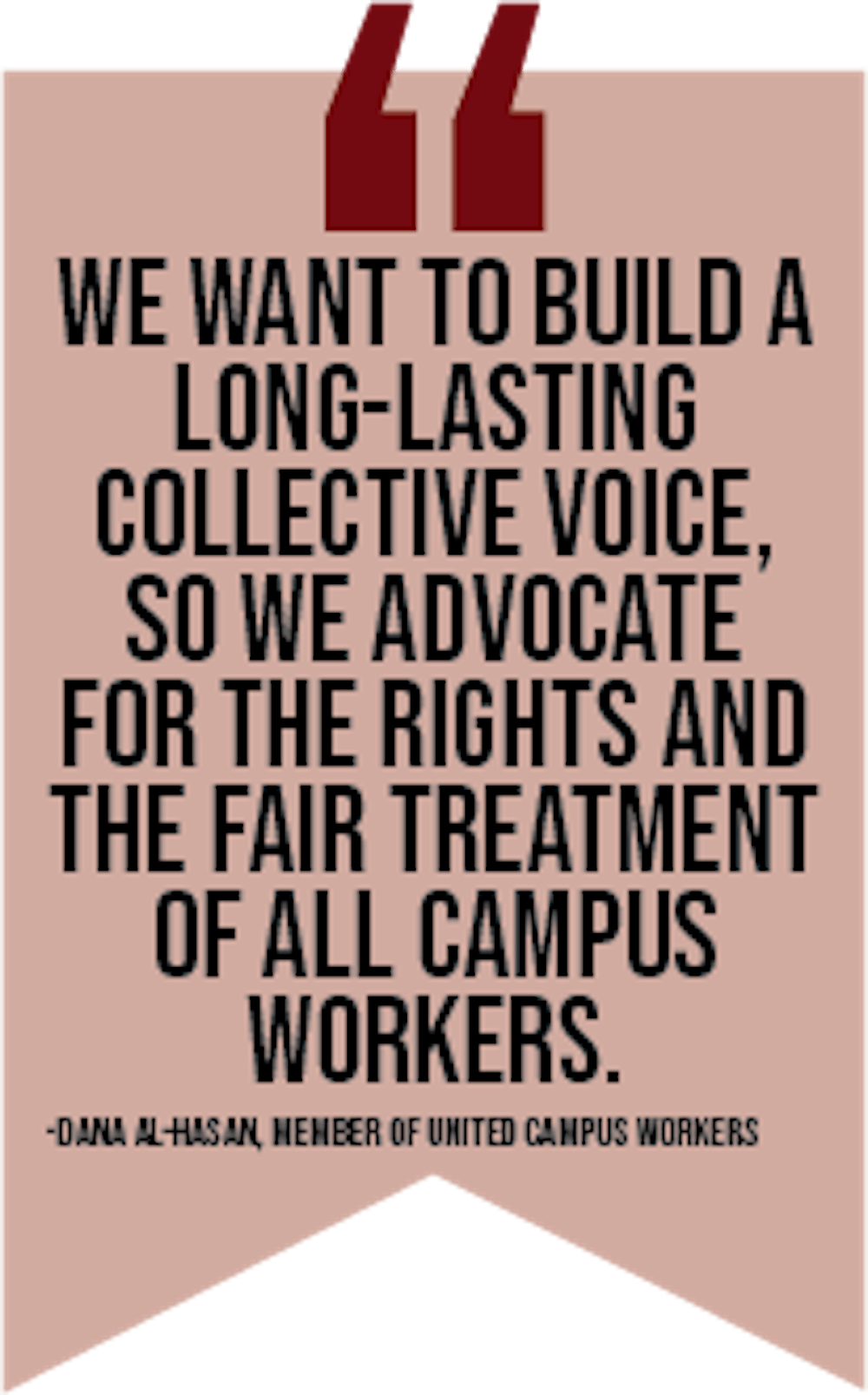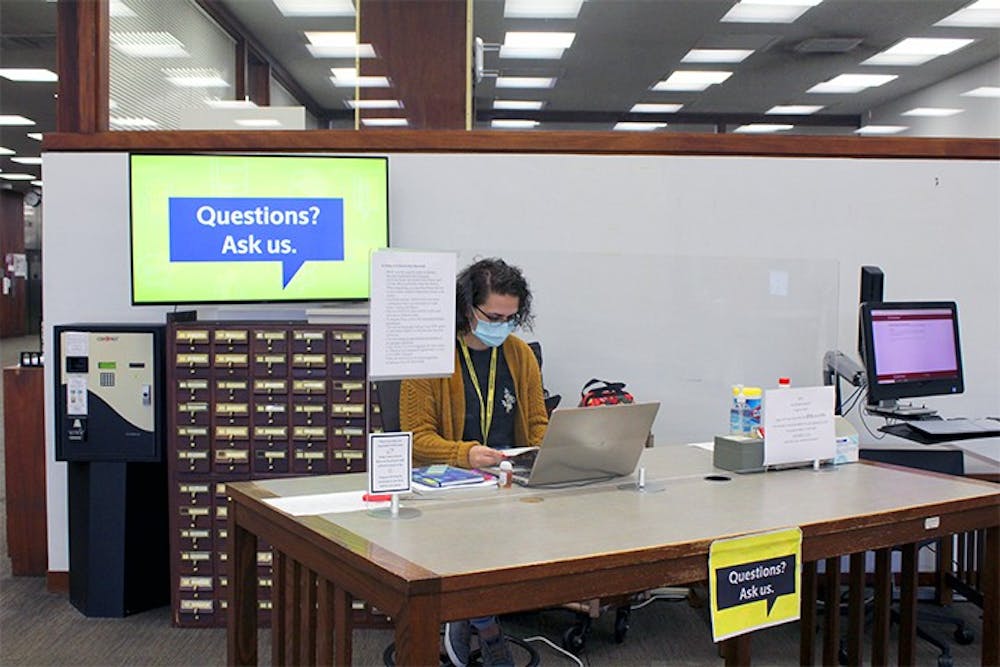The United Campus Workers of South Carolina (UCW) is in the early stages of improving workers' conditions at USC for student workers, faculty and staff alike, with a current focus on healthcare.
"We're really here to create a union of workers at the University of South Carolina," Dana Al-Hasan, a USC alum and early member of UCW of SC, said. "We want to build a long-lasting collective voice, so we advocate for the rights and the fair treatment of all campus workers."

Al-Hasan said that when she worked at USC as a graduate student, she felt she and her fellow student workers, who were working more hours for less compensation, were treated unjustly by the administration . Despite being paid more than minimum wage, Al-Hasan was living paycheck to paycheck. She became interested in forming a workers union in April 2018.
One faculty member in UCW is assistant professor William Matchin. Matchin worked as a PhD student at the University of California Irvine. Although he wasn't very involved in it, he said it had a very different campus workers union.
"I wasn't very active in the union. I kind of took it for granted when I was there," Matchin said. "One thing that was very powerful was that they had actually increased wages. There was a lot of standardization in terms of employment."
Based in the South, UCW has branches in Tennessee, Georgia, Mississippi, Louisiana, Alabama, Kentucky and South Carolina.
UCW of SC reached the 50 member minimum to become a chartered organization around April. It plans to adopt a horizontal structure, so there will not be a single leader. Instead, it will have many committees.
Currently, UCW of SC is focusing on subsidizing health insurance for all workers. As a graduate student, Al-Hasan said she felt it "[didn't] make sense" that 75% of her tuition was for healthcare, something she believes is a basic need that everyone should have access to.
When the United Campus Workers at the University of Georgia focused on healthcare, it successfully got health insurance for graduate students within a year. Al-Hasan said she is optimistic that USC will achieve this goal as well.
In the future, UCW of SC might be able to run multiple campaigns at once with people who are passionate about certain issues.Some of those committees could focus on mental health, tuition, wages or sexual harassment.
UCW of SC also might address issues concerning custodial staff, food workers and even security guards who are under contract but not official USC employees.
"Outsourcing staff is just a way that the school can get around providing healthcare and proper pay to their staff," fourth-year health promotion and education PhD student Marilyn Wende said.
Members of the UCW of SC expect opposition from the university, Al-Hasan said, but remain hopeful that with faculty and staff members they will have more leverage with the university's administration.
"When faculty members are standing by me as a student as I say I need healthcare, that's a lot more powerful than even if I got every graduate student in the school to get on board for that," Wende said.
Gregory Torok, the director of employee relations in the Division of Human Resources, said in an email interview that he believes the newly formed staff senate is the ideal way for staff to communicate with the administration.
"Generally speaking, the university always welcomes the input of students, faculty and staff," Torok said. "Since President Caslen’s arrival, I know he enabled the creation of the new Staff Senate, which will allow a formal channel to engage staff and bring their interests and concerns before the administration. In my opinion, the Staff Senate will be the most effective organization to facilitate communication between the staff and the administration."
Torok said the staff senate does not include student workers, but it does represent "all classified and unclassified, temporary, temporary grant and time-limited staff employees at the University of South Carolina-Columbia."

